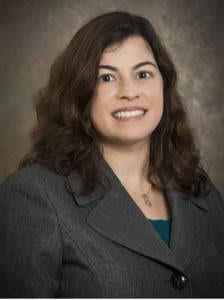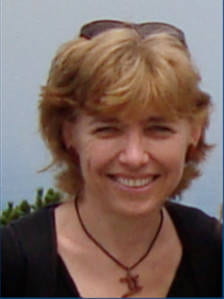Tech Talk Tuesdays: Teachers of the Year 2023

Polly Zavadivker
Assistant Professor of History and Jewish Studies
Director, Jewish Studies Program
College of Arts and Sciences
Polly Zavadivker teaches courses in Modern Jewish and European History, and directs the Program in Jewish Studies. Her current book project, entitled “A Nation of Refugees: World War I and the End of Russia’s Jews” (under contract with Oxford University Press), explores the experiences of Jewish refugees and the humanitarian campaigns formed to help them withstand the trials of total war.
In her teaching at UD she uses interdisciplinary methods to convey the varieties of Jewish experience in the Diaspora and modern Israel. She emphasizes the use of primary sources, including diaries, literary works and official documents, as well as photographs, works of art and film, and material objects.
Her publications include S. An-sky, 1915 Diary (Bloomington: Indiana University Press, 2016) as translator and editor; and “Fighting ‘On Our Own Territory’: The Rescue and Representation of Jews in Russia during World War I,” in Russia’s Great War and Revolution: The Centennial Reappraisal, vol. 1: Russia’s Home Front, 1914-1922: The Experience of War andRevolution, eds. Adele Lindenmeyr, Christopher Read, Peter Waldron (Bloomington: Slavica Publishers, 2016).
Alenka Hlousek-Radojcic, PH.D.
Associate Professor of Biological Sciences
Honors College
She considers that meaningful learning occurs when it includes the processes of discovery by a learner (cognitive constructivist) in a collaborative environment (social constructivist). It is her student, the learner, who constructs a personal knowledge map, not she, the educator, who presents it. Although Prof. Alenka’s own education emphasized didactic styles of instruction, with roots in medieval times, these experiences prompted her to part ways with that tradition. Thus, drawing on her personal experiences and on the findings from cognitive science and discipline-based education research, she has evolved into an ardent practitioner and a promoter of student-centered active learning pedagogies.
How does Prof. Alenka facilitate development of the skill and knowledge base that helps her students form better organized, more easily retrievable, discipline-specific content knowledge? Her students:
- practice asking questions using Question Formulation techniques
- construct and analyze system models as explorative, presentation, and studying tools
- communicate research findings and knowledge in written and oral formats to their peers (Scientific Poster Presentations) and to non-scientists (Press Conference)
- make observations to formulate hypotheses (Guided and Open Inquiry Lab Projects)
- design experiments to test hypotheses (Guided and Open Inquiry Lab Projects)
- collaborate with peers on team projects (Guided and Open Inquiry Lab Projects, Press Conference, Scientific Poster Presentations) and in-class meetings (case studies)
- apply knowledge of chemical principles to biological systems (lecture, studio, labs)
- practice the art of critique (Poster presentations, Press Conference, team work)
- practice the art of analyzing data using simple statistical methods (Guided and Open Inquiry Lab Projects, Press Conference, Scientific Poster Presentations)
- reflect on their learning to make appropriate adjustments (weekly electronic Learning Journals, eLJs)
- students are supported by a trained teaching team of preceptors, workshop leaders, studio fellows, graduate and undergraduate teaching assistants


Debbie Delany
Associate Professor of Entomology
Department of Entomology and Wildlife Ecology
College of Agriculture and Natural Resources
She mentors graduate and undergraduate students working on various aspects of pollinator health and productivity. She adores teaching and currently teaches Insects and Society, Apiculture, Pollination Ecology, Aquatic Entomology, Bridging Art and Science: Environmental Communication, Growing Future Naturalists and Insect Pest Management.
“Being able to ignite a student’s passion to learn about insects, or any subject, is perhaps the most important attribute an excellent teacher can have,” explained Kyle McCarthy, Associate Professor of Wildlife Ecology. “We all know the best learning occurs when a student is interested in the content. Dr. Delaney’s enthusiasm for insects and student learning led to both growth in our insect ecology and conservation major and enrollment in Insects and Society (ENWC205) course.”
In 2015, Professor Delaney was the recipient of UD’s Excellence in Undergraduate Academic Advising Award.
Deborah Delaney has more than 30 years of experience working with pollinators, specifically honey bees, and maintains between 100-200 colonies in and throughout Delaware, Pennsylvania and Maryland. Her research program has four main focal areas: 1) genetic identity and diversity of US honey bees; 2) temporal stability of pollinator populations; 3) best management solutions for creating sustainable managed pollinator populations; and, 4) pollinator nutrition and forage mapping. Delaney earned a bachelor’s degree in natural resources and a master’s degree in environmental science from Oregon State University, and a Ph.D. in entomology from Washington State University.
